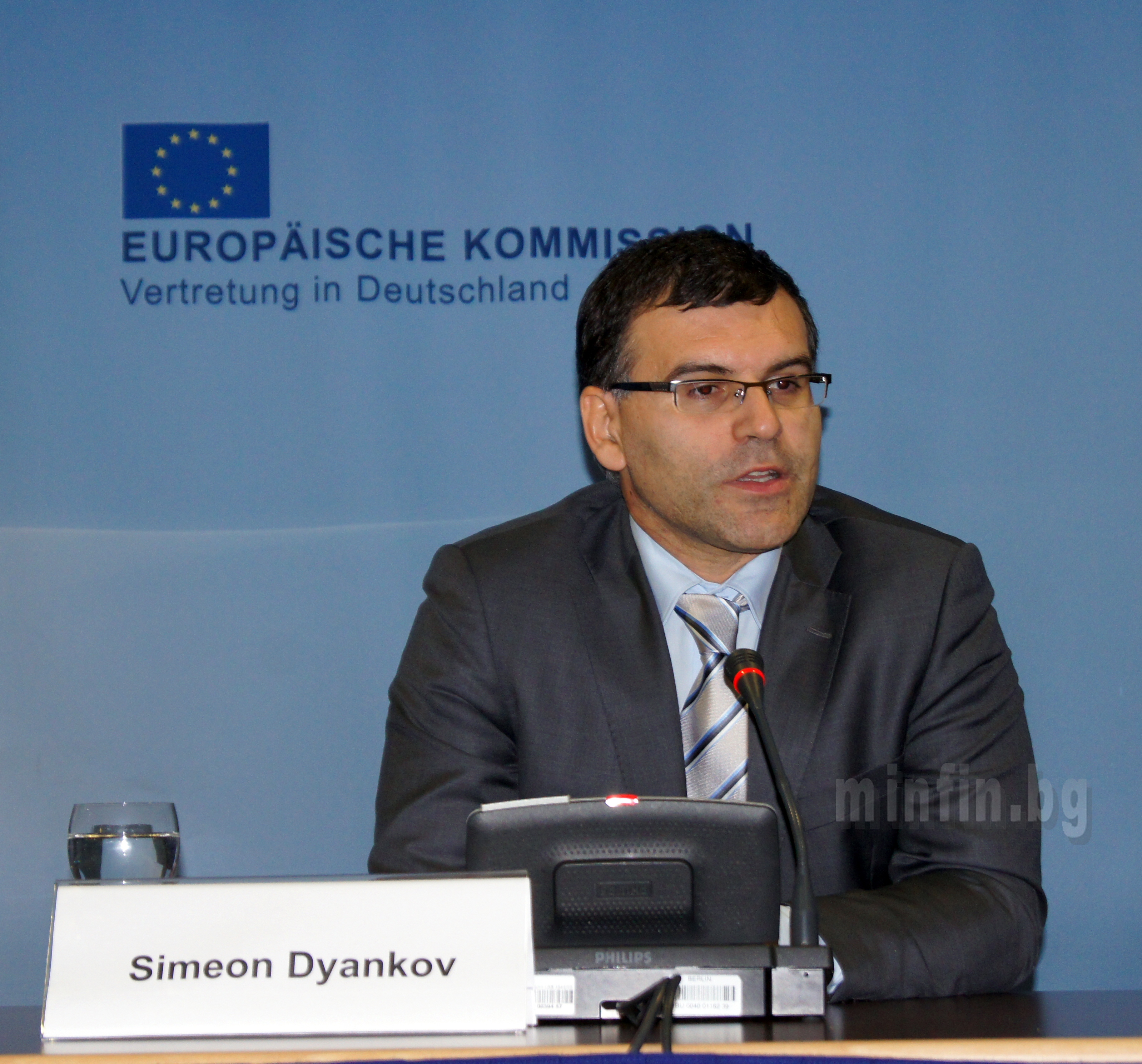SIMEON DJANKOV: FISCAL RULES IN NATIONAL LEGISLATIONS WILL ENSURE LONG-TERM STABILITY

21.10.2011
The events from the past months show that the central European institutions have proven unable to cope with the debt crisis. If the Maastricht criteria had been strictly adhered to, we would not have come to the current situation. Deputy Prime Minister and Minister of Finance Simeon Djankov said the above at a public lecture delivered by him late last night at the EC Representation in Berlin. A possible solution to the debt problems is the fiscal rules to be enshrined in national legislations. This will make national parliaments a natural guarantor of financial discipline observance in each EU Member State, pointed out the Finance Minister.
He reminded that Bulgaria has envisaged in its Organic Budget Law a limit for the deficit of 2% and for the expenditure to be allocated through the budget of up to 40% of GDP. These rules are already statutory regulated and we will comply with them from 2012 on, added Simeon Djankov; he also pointed out that this would not limit the opportunity to invest in and to support sectors in need. For this purpose, in the past two years the Bulgarian government has been actively investing in infrastructure and regional development, relying mainly on EU funds. On the other hand, there are possibilities for internal reallocation within the budget so that more funds to be invested in sectors such as education, science and culture at the expense of the security sector. True national security today stems from the existence of more educated and competent people, was categorical the Deputy Prime Minister.
Bulgaria is not threatened by the debt crisis because as early as in the second half of 2009 it took strong measures to curb its expenditures and managed to contain its deficit without resorting to external loans. Although our country still has the unenviable position of the poorest EU Member State, the measures we have taken protect us from the risks the consequences whereof we see today in Greece and other southern European countries. The financial injection, used by the IMF to help Greece two years ago, has led nowhere because giving money without any counter reforms exacerbates the problem rather than solve it, commented Simeon Djankov. He expressed his hope that a reasonable decision on Greece would be taken in the coming days, as well as that the private sector should play greater role in the Greek debt restructuring.
Earlier in the day Minister Djankov had a meeting with Mr. Steffen Kampeter, First Deputy Minister of Finance and Parliamentary State Secretary. In a comment for BNT1 after the meeting the Deputy Prime Minister pointed out that it was important the upcoming EU Summit in Brussels on 23 October to give a categorical answer to the problems or otherwise speculators on international financial markets could abuse with the situation. Problems should be solved locally, by curbing expenditures and reducing deficits, also said Simeon Djankov.